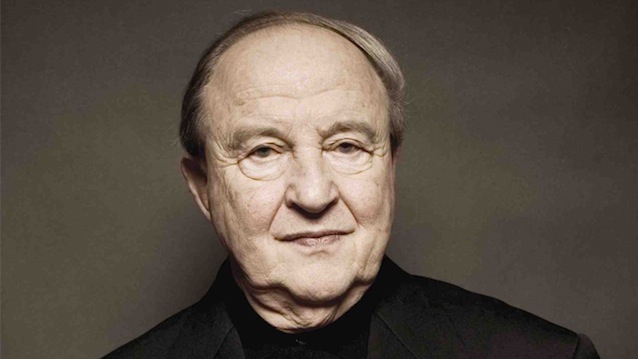Pressler shows flashes of old magic despite the march of time
Representing an ever-dwindling generation of twentieth-century pianists, Menahem Pressler was the lifeblood of the Beaux Arts Trio for over fifty years, outlasting personnel changes in the strings to serve as its first and only pianist, until the ensemble’s final concerts in 2008.
Though well into his eighties at the time, Pressler recommitted himself to solo work after his half-century with the Beaux Arts. In the years since, he’s made his belated Berlin Philharmonic debut and performed Schubert’s Winterreise for the first time. He recuperated from surgery last year in time for a celebrated Wigmore Hall appearance and solo recital at the 2015 Verbier Festival.
Now, 92, Pressler’s grit and determination were reflected in his ambitious recital program Sunday at Symphony Center. Traversing from a Schubert sonata and Chopin mazurkas to a Debussy suite and music of György Kurtág, Sunday’s recital was a well-selected goodie bag of repertory, albeit one that ultimately resulted in mixed performances.
Taking the stage with the aid of his page-turner and using a cane, Pressler opened with a nostalgic take on Mozart’s Rondo in A minor, which he imbued with a tender lyricism and sensitive touch. Yet the veteran pianist’s playing has undeniably lost some of its precision and agility with muddy bass notes, sleepy tempi, and meandering trills.
The Rondo introduced what would become recurring themes over the course of the program. While Pressler’s recital was marked by delicately shaped phrasing, one couldn’t always sense the same meticulousness in terms of each work’s broader structure. Longer pieces on the program suffered most noticeably from this lack of architecture.
Schubert’s G-major Sonata bore the brunt of the prevailing blandness: Each movement was played at the same glacial tempo, and past the first movement, even dynamics seemed to become grayed, hovering around an uncertain mezzo-forte.
Just as the Schubert provided an uncertain end to the first half, the Chopin Ballade in A-flat Major which concluded the second couldn’t quite get off the ground. Even given the Ballade’s innate contrasts, Pressler’s interpretation lacked trajectory; upon reaching an arrival point, there was never truly a sense of arrival, just one of passing through.
Fortunately, the shorter works that came between those two epics proved more successful. Pressler has enjoyed a professional relationship with Kurtág through the Beaux Arts Trio, and he played the Hungarian composer’s beguiling Impromptu al ongarese . . . to Menahem Pressler with relish and reverence.
Pressler’s predilection towards slow yet flexible tempi found a more inviting home with Debussy’s Estampes. Here, Pressler’s interpretation matched sentiment and technical aptitude in equal measure: The first-movement “Pagodes” was airy and bell-like, “La soirée dans Grenade” refreshingly contoured and sultry, and “Jardins sous la pluie” cohesive and deftly handled, albeit at only a fraction of the full tempo.
Pressler was entirely in his element, as well, for three Chopin mazurkas. The B-Flat Major, Op. 7, No. 1, was buoyant and elegantly shaped, while its F minor companion was brooding. Pressler’s slow tempos made other interpretations sound downright chipper in comparison. A sweetly sad Mazurka in A minor, Op. 17, No. 4, capped off the trilogy.
Wisely, Pressler ended with a single encore in that vein: Chopin’s haunting, posthumous Nocturne in C-sharp minor, played with an effectively spunky interpolation in its middle. He graciously acknowledged an effusive audience before being helped to his feet and aided offstage.
Posted in Performances



